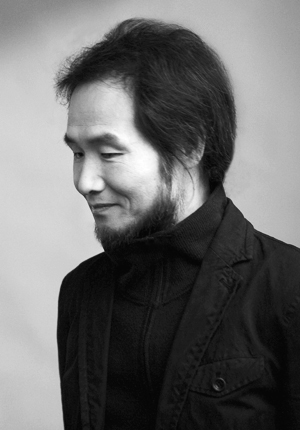
Park Nohae was born in 1957 in Hampyeong, South Jeolla Province. His original name was Park Gi-pyeong.
While working as a laborer in various factories in his 20s, he began to reflect and write poems on the sufferings of the laboring class. He then took the pseudonym Park Nohae (No = ‘labor,’ Hae = ‘liberation’) and published his first collection of poems, 노동의 새벽 (Nodongui Saebyeok) Dawn of Labor, in 1984, under that name.
Korea was at that time under the military dictatorship of Chun Doo-hwan, with strict censorship. Despite official bans, this collection sold nearly a million copies and created intense interest. The unknown poet became an intensely symbolic figure of resistance. The government authorities tried in vain to identify and arrest him. For seven years he was active underground, helping establish the 'South Korean Socialist Workers’ Alliance' in 1989. Finally arrested in 1991, after twenty-four days of investigation, coupled with cruel, illegal torture, the prosecution demanded the death penalty for the ‘leader of an anti-state organizations’, and he was sentenced to life imprisonment.
| Dawn
of Labor (1984) 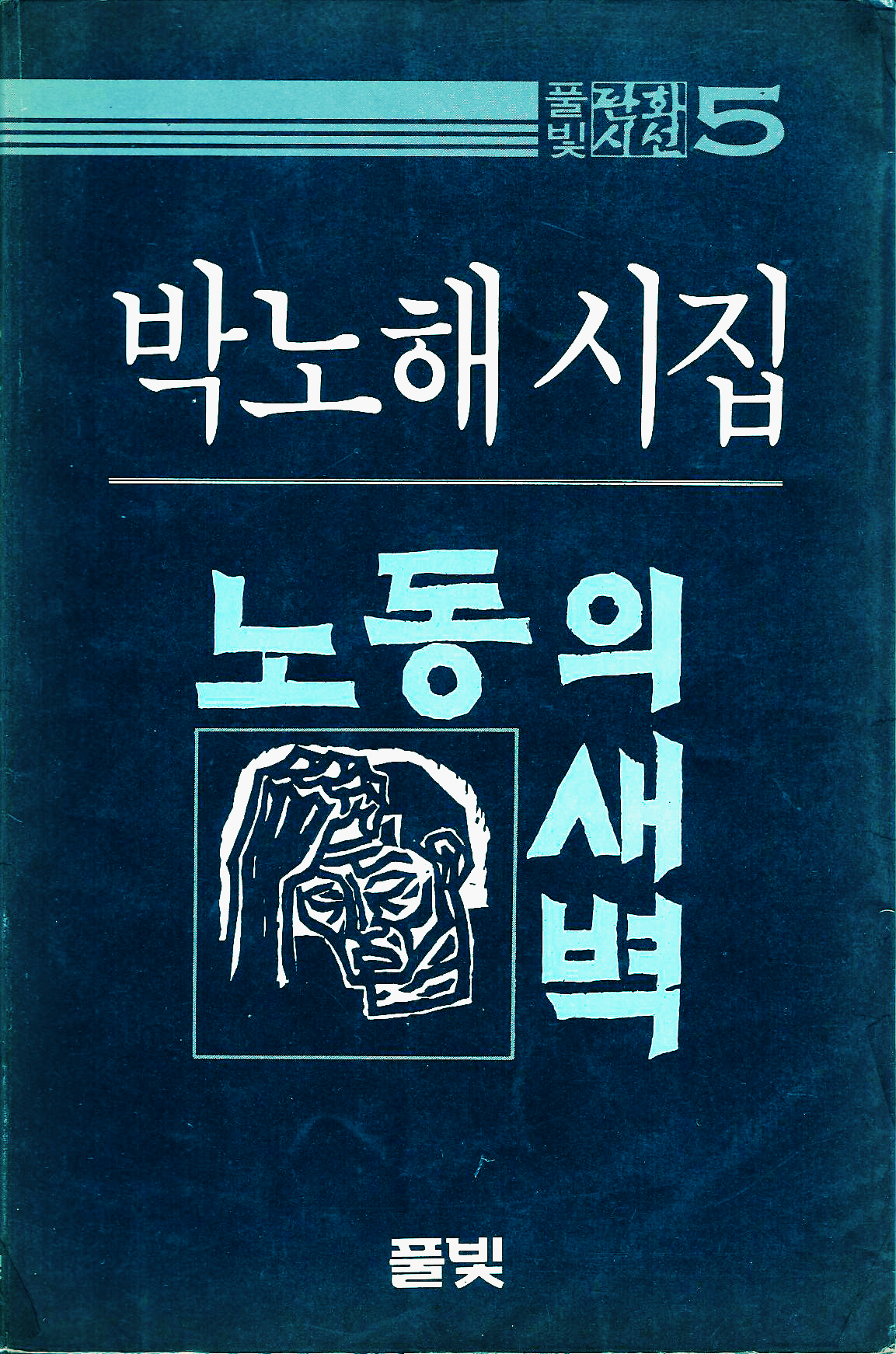 |
True Beginning
(1993) 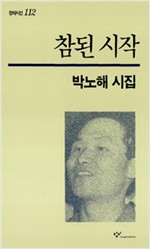 |
Only a Person Is Hope
(1997) 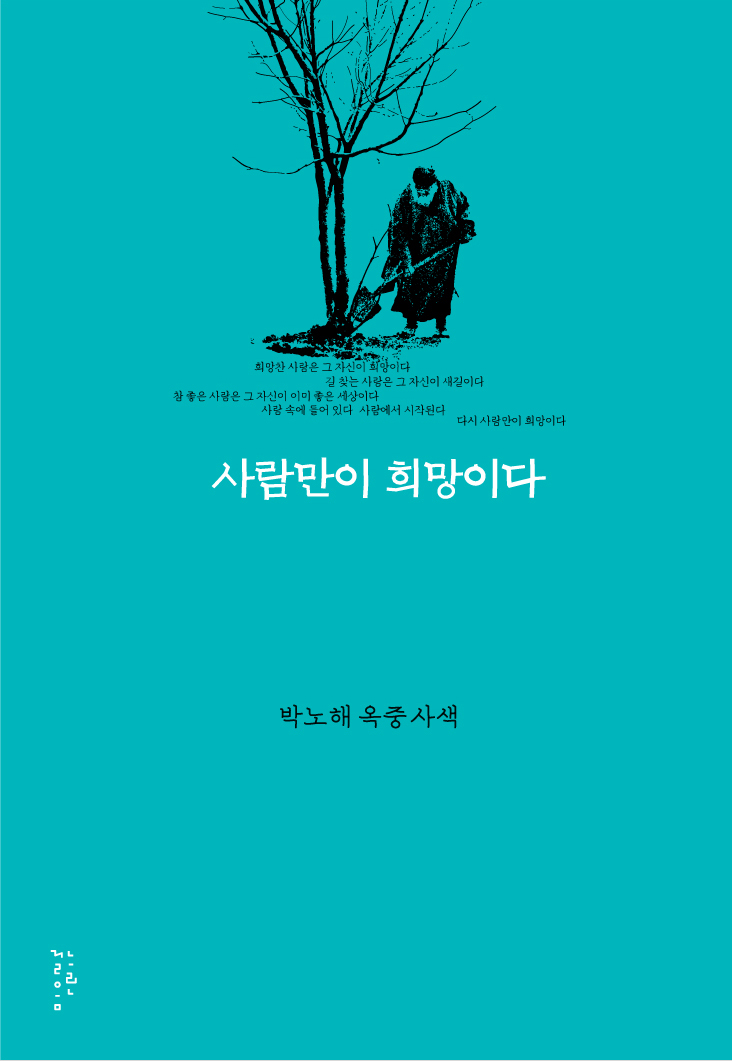 |
So, You Must Not Disappear
(2010) 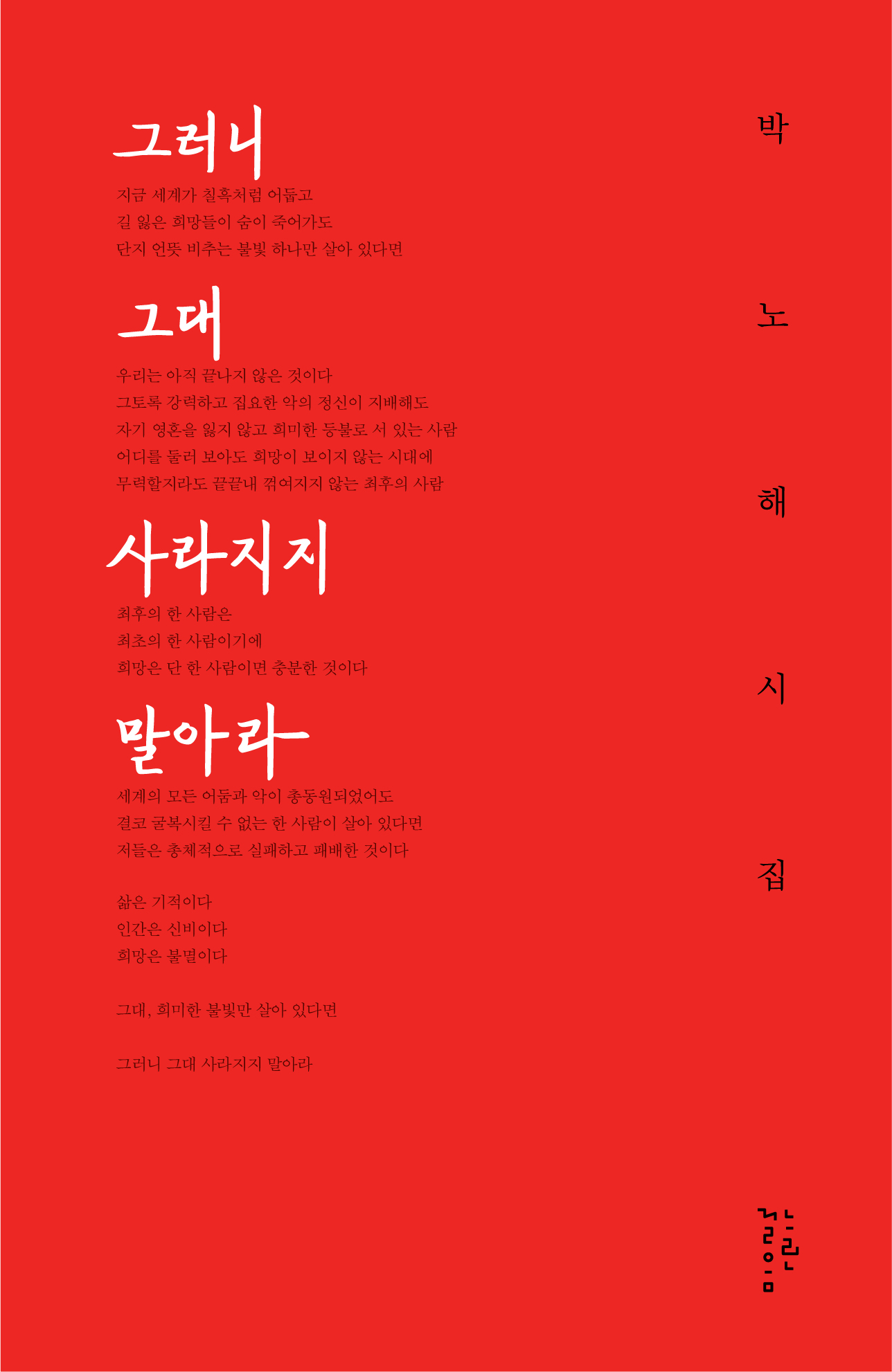 |
Seeing Your Sky (2022)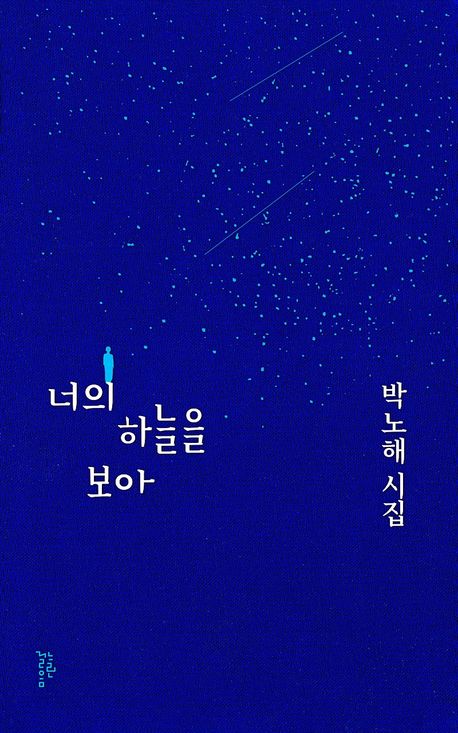 |
The
Tear-Flowering Boy (2024
Autobiographical essays)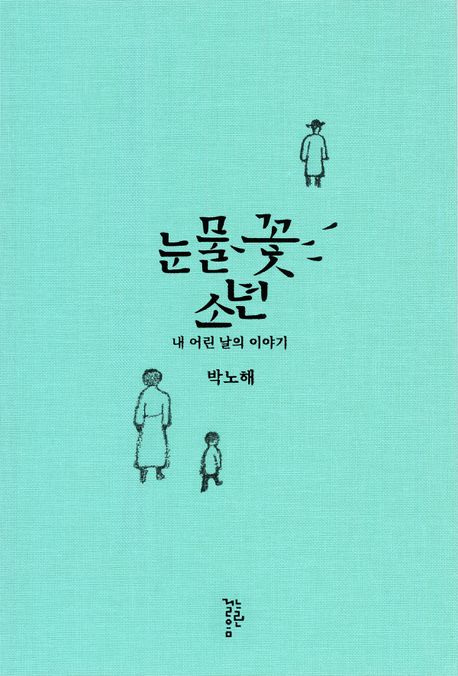 |
Dawn
of Labor (2024 English Translation)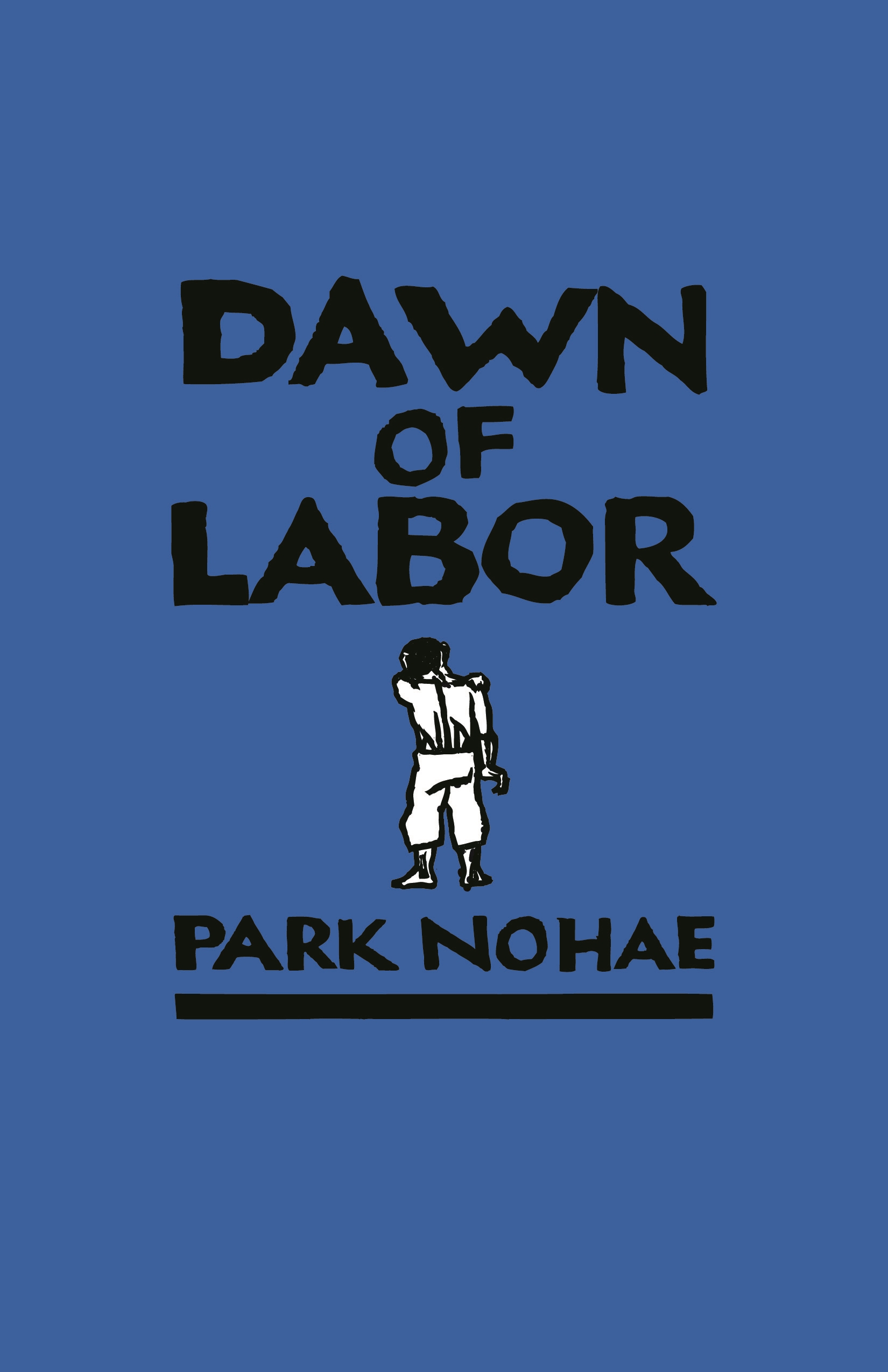 |
The
Blue Light Girl
(Picture book) 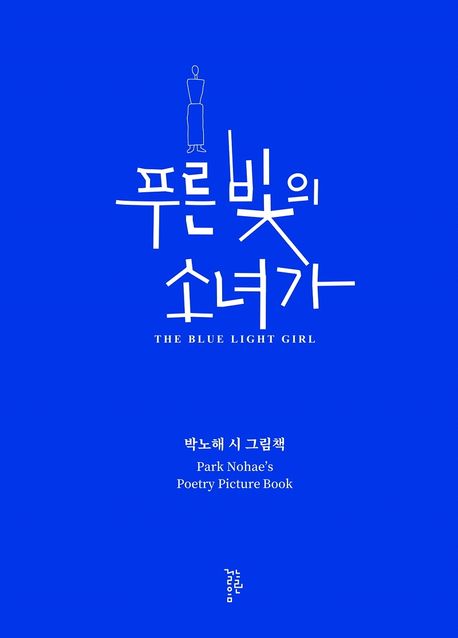 |
Like
Them, I Am There
(Photos) 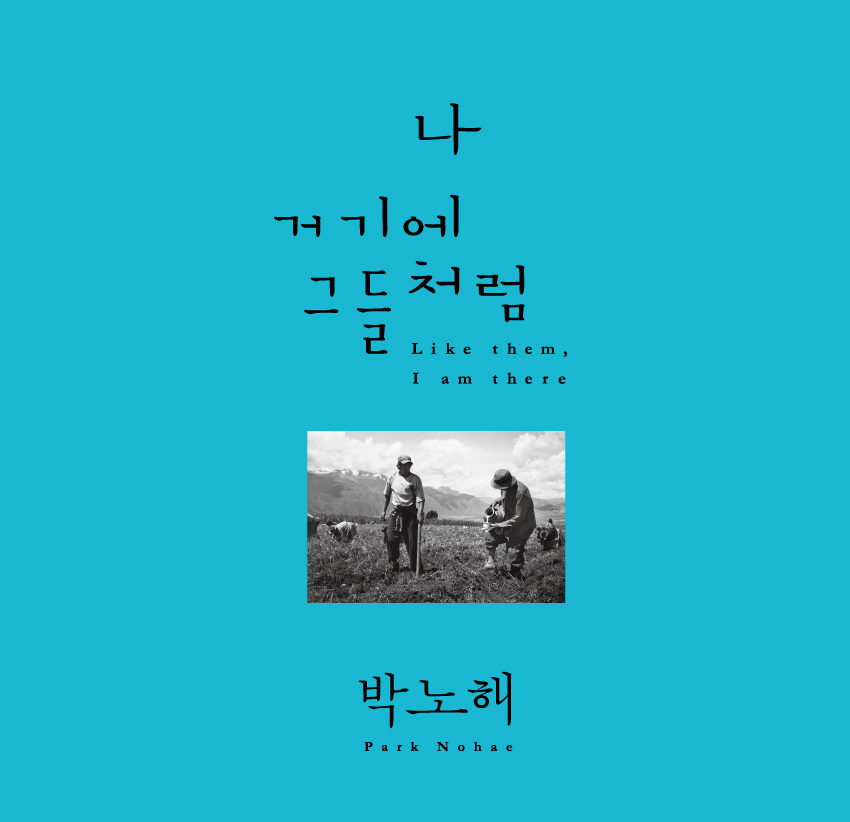 |
In
2021 Park Nohae published a bilingual collection
of over 400 aphorisms with photos, at the same
time as a new exhibition was begun with the same
title: 걷는 독서 Reading While
Walking Along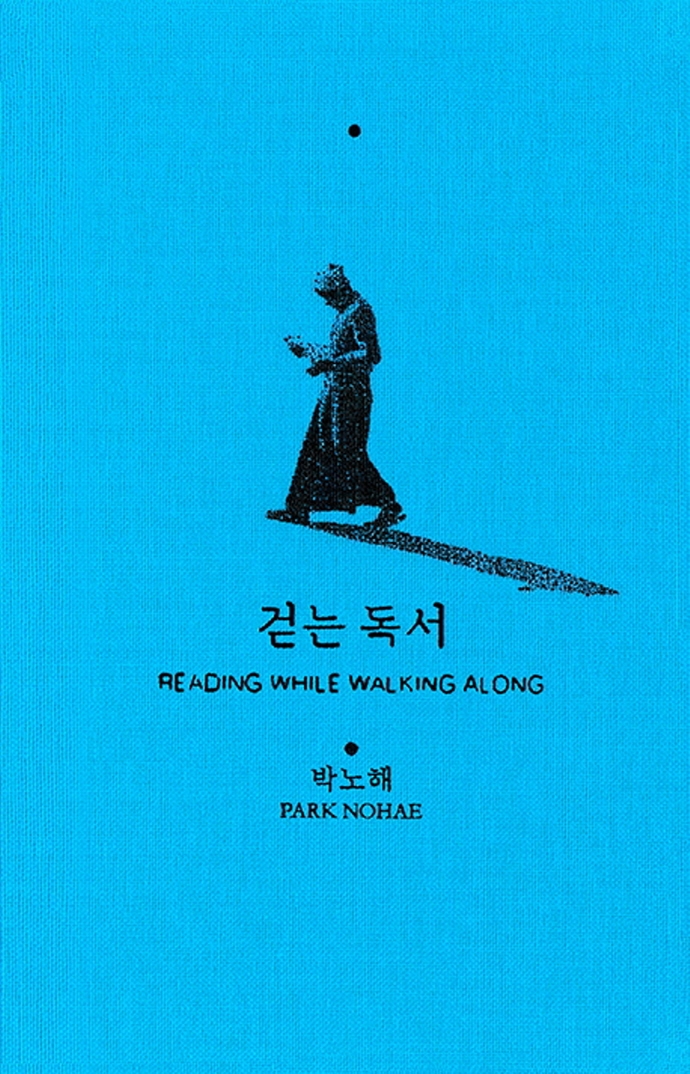 |
While he was in prison, a second poetry collection was published, 참된 시작 (Chamduin sijak) True Beginning (1993), followed by a third, 사람만이 희망이다 (Sarmamani huimangida) Only a Person Is Hope (1997). He was finally freed after being amnestied in 1998 by President Kim Dae-Jung. Withdrawing from his previous role, he helped establish a social organization Nanum Munhwa “Culture of Sharing” with Koreans concerned with the great challenges confronting global humanity.
In 2003, at the United States’ invasion of Iraq, he went with other peace activists to protect helpless civilians and promote peace. At that time, he undertook peace activities in Bagdad and in other Middle Eastern countries for 75 days. In 2006 he was in Lebanon on a similar peace-making mission and publicly opposed the dispatch of Korean combat troops to the Middle East. From the start he combined poetry-writing and photography, as he went to many countries that were suffering from wars and poverty, such as Palestine, Kurdistan, Pakistan, Aceh (Indonesia), Burma, India, Ethiopia, Sudan, Peru and Bolivia. In 2010 he held his first exhibition of photos, “Ra Wilderness,” and since then he has continued to hold exhibitions to draw public attention to global issues of poverty, human values, and warfare.
In 2010 he finally published a large new collection of poems, 그러니 그대 사라지지 말아아 (Geuroni geudae sarajiji marara) So, You Must Not Disappear, on themes such as resistance, spirituality, education, living, revolution and love. Since then, while living in a remote rural community far from Seoul, he continues, with the members of “Culture of Sharing,” to hold photo exhibitions in a dedicated gallery, the Ra Café and Gallery, in Seoul, also occasionally publishing photo albums, such as 나 거기에 그들처럼 (Na geogie geudeul choreom) “Like Them, I am There,” and “Another Way.”
In June 2019 a new, larger, gallery and cafe opened at 28 Jahamun-ro 10-gil, Tongui-dong, Jongno-gu, Seoul (Tel. 02-379-1975). The new gallery can display nearly 40 photos at a time, each exhibition lasts 6 months or more, and the poet / photographer composes evocative captions for each photo. The entire series of photos and captions (with English translations) of each of these new exhibitions has been published as the start of a series of photo essays, 하루 "One day," 단 수하게, 단단하게, 단아하게 "Simply, Firmly, Gracefully," 길 "The Path," 내 작은 방 "My Dear Little Room," 아이들은 놀라워라 "Children Are Amazing," 올리브 나무 아래 Beneath the Olive Tree.
In 2020 he published a picture book, with short poetic texts, 푸른 빛의 소녀가 The Blue Light Girl, and in 2022 he published a new poetry collection, 너의 하늘을 보아 Seeing Your Sky. In 2024 he published a collection of autobiographical essays, 눈 물꽃 소년 The Tear-Flowering Boy
Photo Essay 1: One Day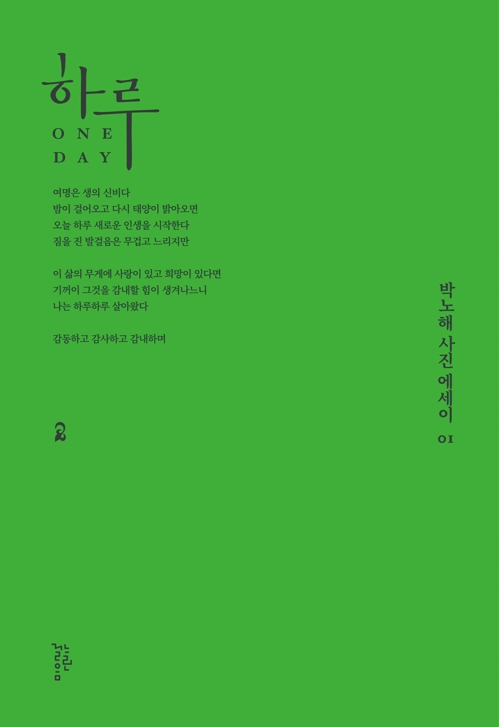 |
Photo Essay 2: Simply,
Firmly, Gracefully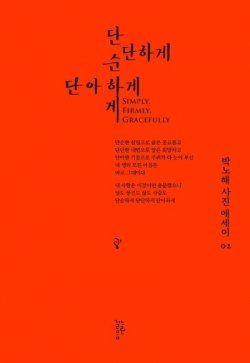 |
Photo
Essay 3: The Path
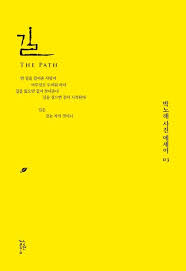 |
Photo
Essay 4: My Dear Little Room
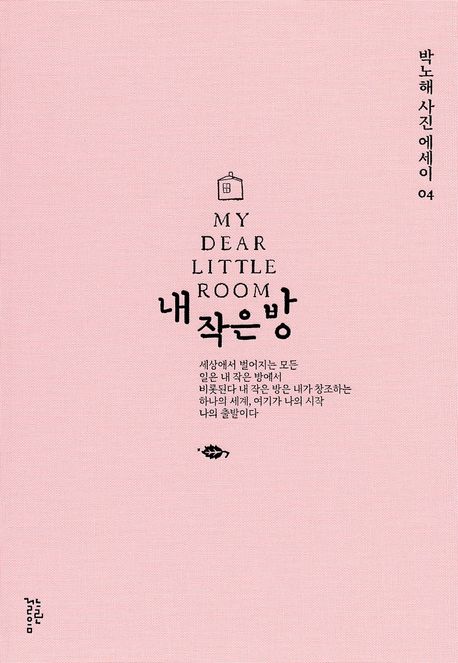 |
Photo Essay 5: Children Are
Amazing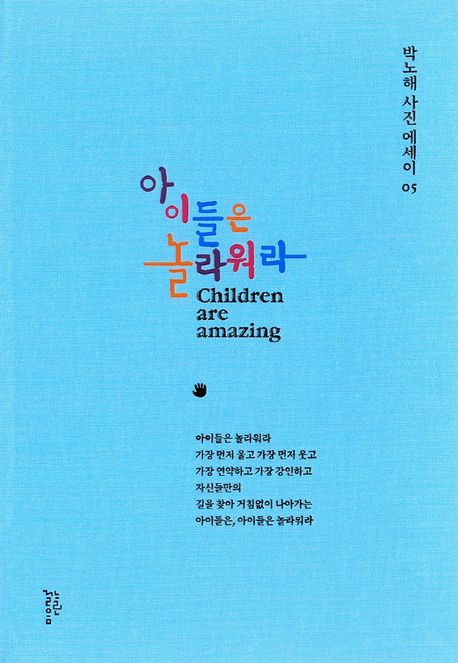 |
Photo Essay 6: Beneath the Olive
Tree
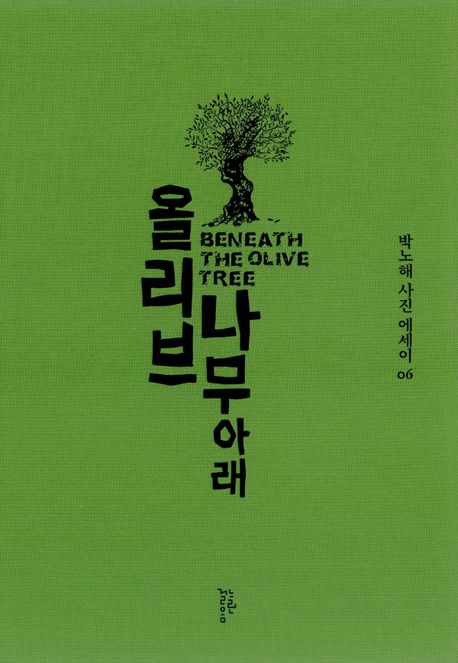 |
When the citizens of Korea began to hold candlelight demonstrations in October, 2016, in protest at the corruption of the Korean government under Park Geun-hae, Park Nohae and the members of “Culture of Sharing” participated actively, then in 2017 they published a large album, "Candlelight Revolution," for the first anniversary. He continues to be active and to write, while efforts are now underway to make his work and writings available internationally in translation.
For a fuller biography of Park Nohae please click here.
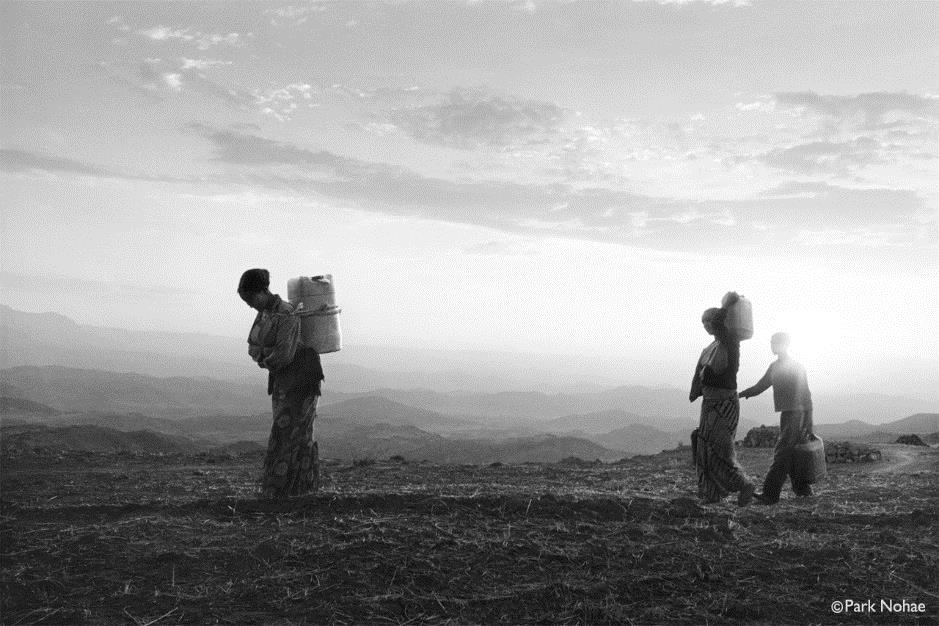 Lalibela, Ethiopia, 2009. DRAWING WATER AT DAYBREAK. Daybreak is life’s mystery. When night comes walking then the sun rises again, a new life begins. As day dawns in the Ethiopian Highlands, I return home from a long journey to draw water. With this water, I will wash rice, wash myself, and quench the cattle’s thirst. My steps bearing such a burden are heavy and slow but if there is love and hope in the weight of this life’s burdens, the strength to endure is given. I have ever lived day by day. I am touched, give thanks, endure. |
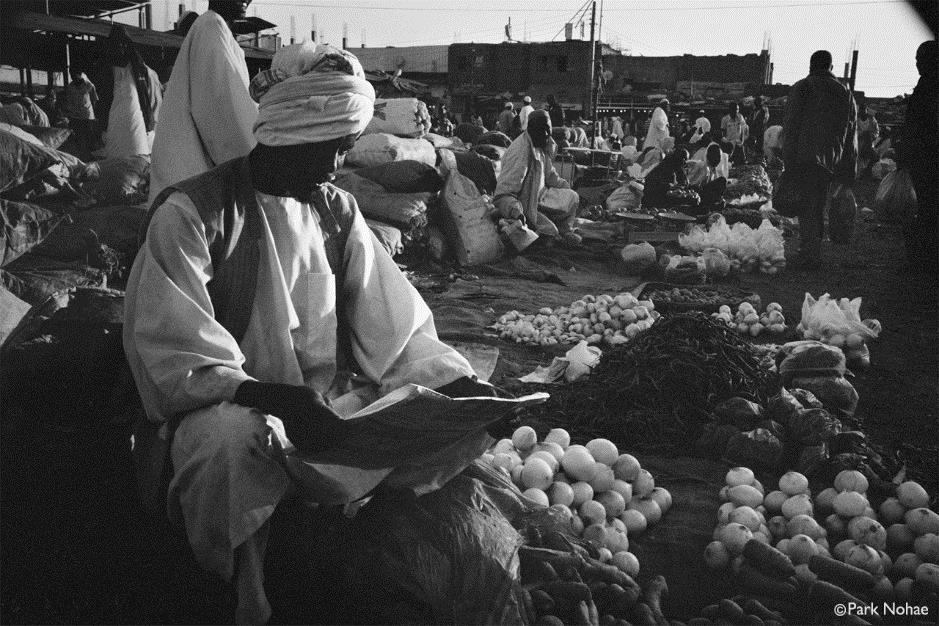 Khartoum,
Sudan, 2008.
DAWN MARKET IN KHARTOUM. In the desert where the Blue Nile and the White Nile meet the celebrated Khartoum dawn market is being held. Is there any other market as vibrant with such rich, varied, tidy, vivid vitality? After carefully stacking onions he has grown, a merchant opens and reads a precious newspaper that many read in turns. Eating and living are the first priority, of course, but I need to know how the world I live in is going. He reads about the world with bright morning eyes. |
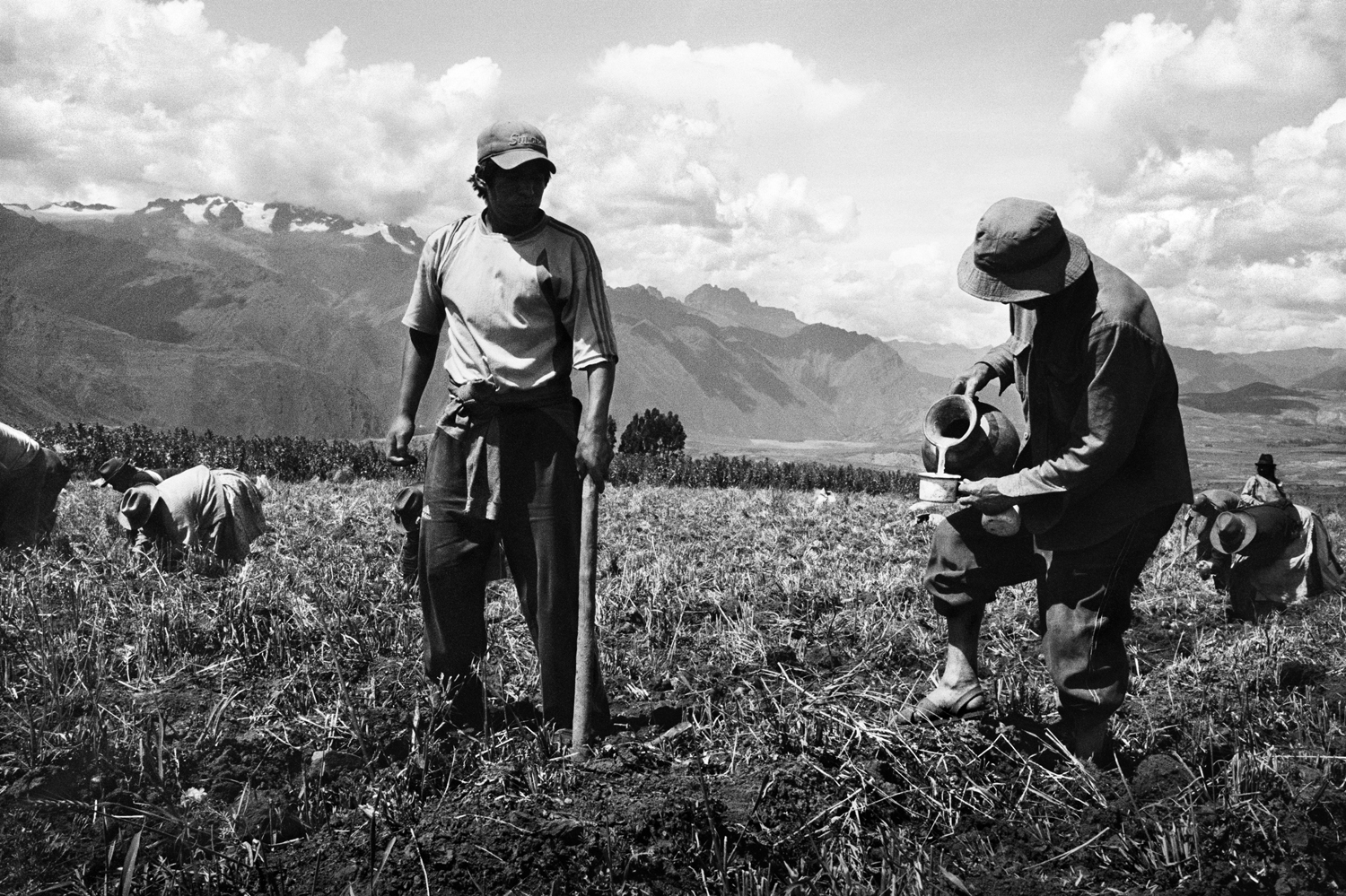 Harvesting
Potatoes on the Andes Plateau
This is a day for harvesting potatoes by the village’s combined labor on the Andes Plateau, birthplace of humanity’s potatoes. The owner of the field whose turn it is today is grateful. We of necessity need each other, so he thanks all who thus share their strength. Glad to see all the faces gathered together, he keeps handing round cups of Chicha corn liquor. As the icy wind from snowy peaks dries their sweat, the sound of young men and women singing, talking and laughing is never-ending. The first potatoes, grown in the Andes 8,000 years ago, every time the world’s potatoes fall sick and are in crisis, are shared out again, as the last remaining ‘seeds of hope.’ Even if today’s world is swept away, shipwrecked, loses its way, the ‘seeds of hope’ live on in this lofty place, and so long as the leading young folk who guard them remain alive, ‘our day’ is not yet over. |
Some Very Popular Poems by Park No Hae
The Dawn of
Labor
I pour icy soju
onto my aching heart.
Ah,
I can’t go on like this much longer,
I can’t go on like this for ever.
With
three wretched meals a day,
covered in grease, in a trial of strength,
all my energy squeezed out, struggling,
though this war-like labor
can’t go on much longer,
can’t go on for ever,
I have no choice.
If
only I could get free,
exhausted, phantom-like,
if only I could fly free of my fate at twenty-nine,
but, ah,
I have no choice, have no choice.
Apart from death, I have no choice.
This tough life,
the yoke of poverty,
this fate, I have no choice.
Into
my drooping body,
for the sake of tomorrow’s approaching workload,
onto my aching heart at dawn
I pour icy soju,
longing for a tenacity stronger than soju,
I pour wrath and sorrow.
This
unavoidable wall of despair
will break and burst in the end
in rough drops of sweat and blood,
as for the sake of our calmly breathing,
growing love,
our fury,
our hope and unity,
we pour a shared glass of icy soju
onto our aching hearts at dawn,
until a new dawn for workers
comes rising up.
Heaven
My
family of three depends for its living on my boss, so
he’s my heaven.
When
I go to hospital cradling a hand crushed in the press,
the doctor can patch it up or leave it crippled, so
he’s my heaven.
Carted
off to the police station for organizing a labor union
after two months without pay,
the policeman who says he’s going to have us locked up
though we’ve never once committed a crime
is an always frightening heaven.
The
judges and prosecutors who can turn us into criminals
or save us
are a dreaded heaven.
The
officials
sitting in government offices who can make us or break
us
are a scary heaven.
High-up
people, people with power, people with wealth
all look like heaven,
and indeed, they really are a black heaven
controlling our lives.
Can
I ever become a heaven
for someone somewhere?
Powerless, I have ever lived at the very bottom, so
there is only one person,
one just beginning to toddle about,
our so lovely little baby,
for whom I am a small, shaky heaven.
Ah,
we too want to be a heaven.
Not a black-clouded heaven weighing down;
we want to be a world where each of us is a blue
heaven for everyone,
supporting one another.
The Winter
Tree that Year
1
Winter
that year was pallid.
People hunched critical shoulders or suffered death,
bodies quaking they said either “Not now,” or again,
now again,
“That blue dream will not return.”
The bitter north wind blowing from Moscow shook the
world
as it bore away in a flash once-fluttering leaves,
birds, and songs, too.
From the ashen sky, flocks of crows swooped down as if
to arrest me,
binding my weary body with merciless cords.
In winter that year,
my beginning was my defeat.
2
It
showed no regret, only ever-deepening shame as
completely stripped, stark naked, neither bright nor
disgraced in appearance,
it stood facing the bitter wind.
Snow fell onto frozen ground.
Snowflakes piled up stiflingly, broke the remaining
twigs,
muffled screams echoed white through the valleys.
Not a word, there was no need for words.
Other’s things, once considered absolute, came
crashing down,
a predetermined fall.
Its body stood there alone, a flagpole, considering
itself with sorrowful eyes,
shaking off the old and embracing what still lived to
keep that alive.
The earth, simply full of contradictions as it is,
the roots with their tenacious life simply remained as
roots,
while what remained as ever were people cold and
sorrowful, ah,
for whom being alive was a struggle to live, move and
emit rays of light.
3
Nobody
could say when the winter would end.
Haggard faces, seeming dead, sick with self-criticism,
knew full well that there was no where, no where they
could stand secure.
Thickening joints, increasing growth rings, the roots
raised red frozen hands
produced and raised moist light for themselves.
Only the green, rising within its blood and bone,
was its faith that winter.
A worm of desire came down, crept into the ropes
binding its waist,
and finally the winter tree plucked off the ropes
attaching it, coughed deeply and blazed up.
A biting night wind raged and all through the winter,
only an aching silence reverberated like a bell
within.
All kept silent but believed for sure that that long
silence
was the first step toward a new birth.
In winter that year,
my defeat was my true beginning.
Once Again
A
person full of hope
is already hope.
A
person seeking the way
is already a new way.
A
truly good person
is already a good world.
It’s
within that person.
It starts with that person.
Once
again:
only a person is hope.
So You Must
Not Disappear
who live in the highest, deepest region
of the perpetually snow-capped peaks of the Andes
In the rarefied air we are panting after only ten
steps,
while kicked stones fall over dizzying precipices,
breaking the primeval silence of the highlands in
pitch-dark night.
Has
darkness ever been so heavy, dense, and fearful?
Just as we are about to be seized with the fear of
death, overwhelmed by cold and exhaustion
Is
that a mirage?
Between the perpetually snow-capped peaks,
a dim light gleams.
We
are safe.
The
kerosene lamp of a Q’ero youth
calling us, after we have lost our way in the dark,
Though
night amidst the snow-capped peaks is vast and deep,
that small, faint gleam is sufficient.
Though
today’s world is dark as pitch
and our hopes grow weak, having lost their way,
so long as there is just one chance glimmer of light
we are not yet finished.
I
know there is a light in the world
that darkness cannot understand.*
I know there is a goodness that great evil cannot
understand,
a human spirit that barbarism cannot understand,
a hope that defeat and despair can never understand,
still glimmering,
Even
if such a powerful, tenacious spirit of evil rules,
if there is one person who has not lost his soul and
stands as a faint light,
one last person who to the very end refuses to yield,
no matter how powerless, in an age when no hope can be
seen anywhere,
Since
one last person is one first person,
if there is just one person, it is sufficient for
hope.
Although all the dark and evil in the world are
mobilized,
if there is one person alive who will not surrender,
they have completely failed, they are defeated.
Life
is a miracle,
Each human person is a mystery,
Hope is imperishable.
So
long as you, one faint light, are still alive . . . .
So
you must not disappear.
*
Ivan Illich
When One Road
Ends
When
one road ends,
a new road opens.
When
one door closes,
another opens.*
When
winter grows deep,
a new spring comes walking
When
I fall,
a larger I rises.
The
finest end is a true beginning.
Honest despair is the beginning of hope
*
Helen Nearing
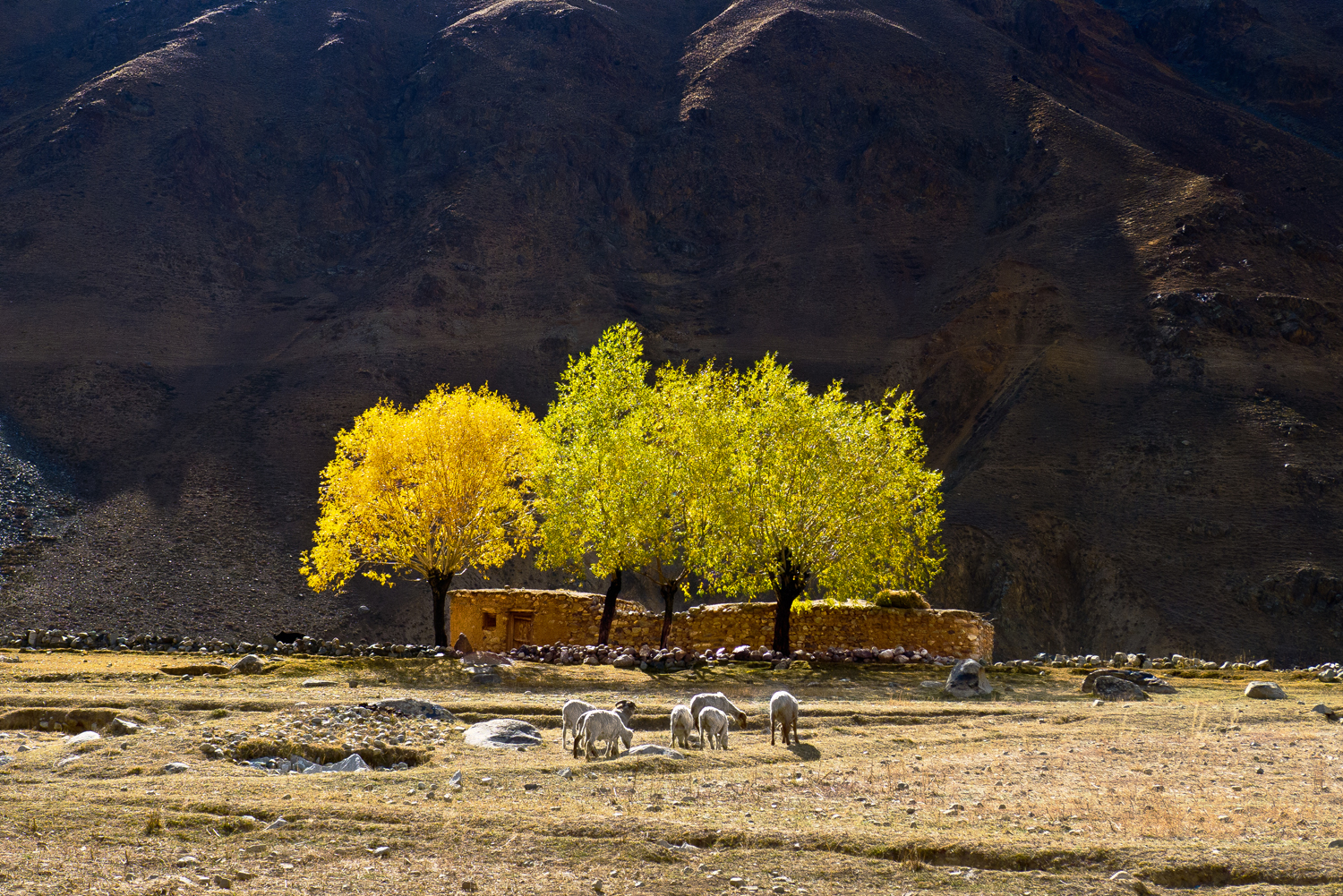
Pakistan